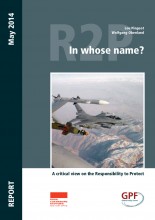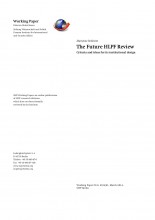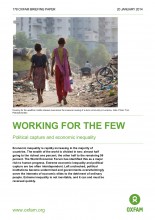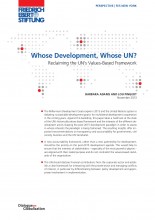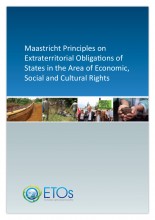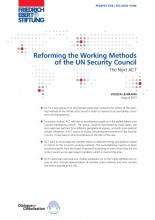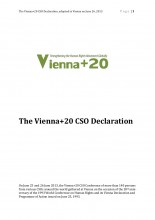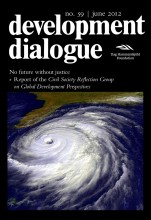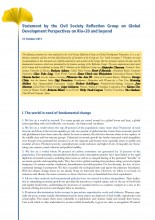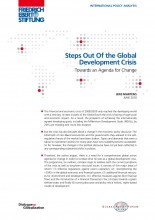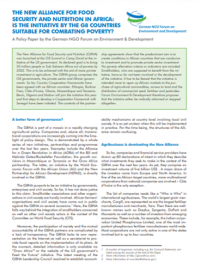
United Nations & Multilateralism - Archive

A new policy paper published by the German NGO Forum on Environment and Development argues that the G8 New Alliance for Food Security and Nutrition in Africa will not be able to combat hunger and food insecurity in Africa. On the contrary, the paper, to which Global Policy Forum contributed, points out that the New Alliance is mainly focused on providing multinationals with opportunities to reap profits through the creation of environments conducive to investment. Thus, the paper calls for [...]
The world faces an unprecedented coincidence of global crises. They testify to the failure of the dominant model of development and economic progress that is oriented on a technocratic modernisation path, is blind to human rights and the ecological limits of the global ecosystem, confuses growth of Gross Domestic Product with progress in society, and regards poverty as a primarily technical challenge in which categories of inequality and social justice are neglected.
The Civil Society Reflection Group on Global Development [...]
On 31 October 2011 the Reflection Group submitted a statement to the secretariat of the Rio+20 Conference to be held in June 2012. It was prepared during a drafting session in October in New Paltz, NY and highlights some of the issues and proposals that will come up in the final report of the Reflection Group again. The final report will come out in spring of 2012 after a final meeting of the Group.
The financial and economic crisis of 2008/2009 only reached the developing world with a time lag. At least in parts of the Global South the crisis is having a huge social and economic impact. As a result, the prospects of achieving the internationallyagreed developing goals, including the Millennium Development Goals (MDGs), by2015 are receding ever more into distance.But the crisis has also brought about a change in the economic policy discourse. The blind faith of neo-liberal economists and the overnments [...]
Having seen dynamic developments in the 1990s, relations between the United Nations (UN) and civil society are now at a critical stage. The number of private actors participating in international negotiations has been increasing and led to a more extensive involvement of these actors in global policy processes. But all attempts to extend formal participatory rights for Non-Governmental Organizations (NGOs) in the UN have failed so far.
Some governments have responded rather defensively to the increasing (quantitative) presence of non-state [...]
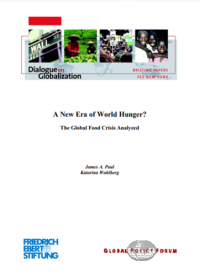
This paper discusses the main causes of the steep run-up in global food prices and the resulting spread of hunger to nearly a billion people worldwide. Authors James A. Paul and Katarina Wahlberg conclude that biofuels and the agro-industrial approach to food production are the main culprits of the food crisis. The paper looks at a wide range of factors endangering nutrition for all, including population growth, unsustainable consumption, international trade policy and climate change. The authors argue for effective [...]

